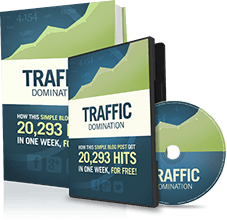Yaro Starak Interview
Interview with Yaro Starak of Entrepreneurs-Journey.com is a young entrepreneur from Australia. Yaro has created, managed and sold several different Internet businesses since 1998 and currently teaches people how to make a full time income from blogging part time through his Blog Mastermind mentoring program
Yaro Starak Interview
Hello Everyone,
Yaro Starak of Entrepreneurs-Journey.com is a highly successful blogger from Australia. Yaro has created, managed and sold several different Internet businesses since 1998 and currently teaches people how to make a full time income from blogging part time through his Blog Mastermind and Become a Blogger mentoring programs. Since launching his mentoring program several years ago, he has gone on to launch a very successful membership site teaching people how to create highly profitable membership websites , which you can learn about by clicking here!
Special Note From Michael: Entrepreneurs-Journey.com is one of my favourite websites – I recommend it to all Entrepreneurs and anyone looking to make money online.
This interview was answered in Audio Format by Yaro – Thank you Yaro
Yaro Starak: Hi Michael, this is Yaro here. Thanks for letting me respond to your interview questions via audio. It certainly makes it easier for me to do so quickly. The only thing is you’re going to get slightly longer answers than you might get if I was just typing them in text. I hope you’re OK with that.
So, let’s get going. Number one, you asked: What was your first website, and was it a blog?
No, my first website wasn’t a blog. My very first website was a hobby site, built with the Geocities free website tool, and it was for a card game I played back when I was in university and late high school, called Magic: The Gathering. I basically went into the Geocities account and created a very poorly-designed website. That site then evolved into a better presented site, once I learned how to do HTML. I actually bought myself a book called “Teach Yourself HTML in 24 Hours” and spent many a night coding up a new design and got myself a proper domain name. This was in the late 1990s and early 2000s, so this was before blogging was really around.
Your second question, number two: What inspired you to start blogging, and was entrepreneurs-journey.com your first blog?
The story with my blogging was that I was running a proofreading business called betteredit.com. That business was doing OK. I was just talking to a friend and they mentioned this thing happening on the Internet called blogging, and how it was really great for getting search engine rankings and building traffic to a website.
Being an Internet business owner, I was quite keen to do anything that would build traffic and help to market my website, so I started to investigate what blogging was about, and I installed a blog. I installed movable type software, and stuck it up on my editing and proofreading website at /blog, and tried to write about editing and proofreading. That didn’t work very well, because it’s not a subject I enjoy or know much about. So I found out very quickly. About a month later, I started writing, instead, about what I had done to make money on the Internet, and what it was like to be an entrepreneur.
That kick-started the whole process. I didn’t create Entrepreneur’s Journey; I transformed that proofreading blog into entrepreneurs-journey.com. I registered the domain name, moved the blog over to the new site, separated it from my proofreading business, and then continued to blog there. Eventually, I switched over to WordPress as the content management system, too.
Michael Dunlop: OK, question three. What advice would you give someone who wants to make money online blogging?
Yaro: That’s a very open-ended question. In the program I teach, which is called Blog Mastermind, I tell my students to really focus on three very inter-related ideas, which are necessary to be in place if you want to be a successful blogger, and of course, make money from it too. The first fundamental aspect of a successful blog is the content. You really do need to have regular and consistent content. Without that, it doesn’t matter if you do everything else right; you just won’t be able to keep anyone you bring to your blog.
The second component is traffic, and obviously, that comes from marketing. You really do have to become somewhat of an Internet marketer, and certainly be self promotional and get your blog to the attention of many people, both online and offline if you can. I’ve been working on link building and doing guest articles on other people’s blogs. Offline, you want to talk about your blog and give people your URL all the time and jus get the word out as much as you can. Those are the two key components, which are content, and then marketing to bring people to that content.
And, of course, the third thing is the actual way you can make money, so that’s where you have to start testing different monetization options. In this case, it’s actually a lot easier than the first two components, because if you can get traffic and you can write the content, that’s what takes time. Once that’s in place, money and making it is all about testing. All you have to do is find different ways to make money, put it on your blog, and see what kind of results you get. If it’s not a good result, try something else. Just keep testing until you find the best combination of monetization options for your particular blog.
Those are the three key ingredients. Just to recap, it’s content, traffic or marketing, and monetization and testing to see the way you can make money from your blog.
Michael: Next question. Why do you feel your Blog Mastermind has been so successful? When you started, did you ever imagine you would end up offering a mastermind program?
Yaro: Well, to answer the first part, Blog Mastermind is successful for a lot of reasons. The really important part, I believe, is having some sort of pre-eminence and experience at what I actually teach.You don’t want to go launching any kind of membership site or training program if you don’t genuinely understand and have experience in what it is that you’re about to train other people to do. It would be quite challenging to even know what to do if you haven’t done it yourself.
Secondly, you do have to have some kind of what I call pre-eminence. Jay Abraham is the person I learned that from. That’s just being perceived in your market as one of the top authorities and experts at what you do. That, in turn, opens up a lot of doors to meeting the right people and, of course, convincing people that you are worth working with. So first, it helps you get customers to join your program, and it also gets you partners who have a lot of audience and access to people who can then promote your site as well. That all comes about because of the fact that you have pre-eminence in your marketplace, which in turn comes from the fact that you really have spent a lot of time becoming an expert at what it is you’re going to each.
That’s certainly what happened with me and Blog Mastermind. If it wasn’t for me blogging for three years and actually making a four-figure income, then a five-figure income, and now a six-figure income from blogging, then I wouldn’t be able to justifiably teach that to other people.
When I started blogging, I certainly had no idea that I’d eventually lead to running a membership site called Blog Mastermind. It was more a case of seeing where blogging would take me. It eventually ended up where I am today, but to go back when I first started my blog, like I said, I did it for a proofreading business, and then I just started journaling what I was doing to make money on the Internet. I didn’t know whether it would be successful. I didn’t know what kind of traffic I would get. I didn’t know if I would personally find interest in the topic. You don’t know any of these things, but once you’ve established a certain position and you’ve got some history behind you and you’ve established an audience, then it’s up to you to see how you leverage that work you’ve done and turn that into more benefits for yourself. In my case, one of the ways I decided to do that I decided to do that was by launching a membership site, which worked very well, so I’m very happy with it.
Michael: Next question. Can you explain a little bit about Blog Mastermind, and can people still join it?
Yaro: OK. To answer the second part, as I record this audio, it is closed to the public. Every now and then, I do a promotion with certain partners that opens up a little window to join Blog Mastermind. This is early 2008 in January as I record this or respond to your question, so chances are that may have changed as you’re reading or listening to this interview. I do have plans to re-open the doors in 2008 to new members, so there will be chances to join yet again.
The program is essentially a six-month, week-by-week training multimedia course in text, video, and audio that teaches someone how to go from, right from the beginning, on having a blog, or if you already have a blog, to becoming what I call a “four-figure-a-month blogger,” so someone who makes anywhere between $1,000 and $10,000 per month from their blog. The goal is to actually get that money coming consistently from only working two hours a day, because I’m a really big fan of not having to work 18-hour days, or even 12-hour days or 8-hour days if I can. More importantly, I want the flexibility and freedom to do other things or work on other business projects if that’s I want to do.
So the blogging component of your income source should be a reasonably low labor and low maintenance aspect. You can, and I’m proof of this concept, make $10,000 a month from your blog just by having to write one article every second day, which might take two hours on average per day, something like that. So it’s definitely realistic.
And that’s what the program’s all about. It’s six months. That’s one lesson a week. Each lesson has action tasks at the end that you need to get done before the next lesson begins, or you do at your own pace – whatever you’re comfortable with. It’s also got videos, which are case studies to show people how to improve, live blogs, where I review other people’s blogs and give them recommendations. It’s got interviews with professional bloggers like Darren Rowse, Brian Clarke, Andy Wibbels.
It’s got a series of “Master the Mindset” audios which just teaches you the mindset, essentially, of how to become a professional blogger and what you need to think in order to make this work. A lot of success has to do with your ability to have the right internal structure, the right internal motivation, and the right attitude toward blogging to get the results hereafter, so that’s pretty important. It’s an entire 10-part series that I produced personally, on how to get the mindset for a professional blogger. That pretty much sums it up. So it’s a six month program.
Michael: Number six. If you could go back in a time machine to the time when you were just getting started, what business-related advice would you give yourself?
Yaro: The number one thing I think I would give myself is to stop doing everything yourself. I wrote an article recently in my blog about my topic, but when I got started, like a lot of people, I had very limited funds and I had an attitude that I wanted to keep as much of the money as I could and not spend it to bring on other people to help grow my business faster. As a result, I created a fairly significant bottleneck in my business growth, and that bottleneck was me. Because I chose to take on nearly all of the tasks myself, it meant that my business growth was very slow and my income growth was also slow.
Despite the fact that it might feel uncomfortable to spend money when you don’t have much money to grow your business, in hindsight it almost always makes sense to do so, because if you could spend a few hundred dollars to get some task done that would take days for you, your days are worth so much more than that. That’s the first thing I’d say to myself back to the day: get help, and don’t be afraid to contract to other people. Focus on what your strength is, and let everyone else do everything else. That’d be my number one tip.
Michael: Number seven. Do you think that entrepreneurialism is something that is in your blood, or is it something that can be learned?
Yaro: I think both. I think it’s in my blood, and it’s something that can be learned. I think in my case, and for a lot of other entrepreneurs, they certainly have the drive to be creative and want to start their own businesses from the day they were born, perhaps. I know in my case, the driving motivation was not to have to work or be somewhere that I didn’t want to be. I knew that running a business would give me that freedom. I think a lot of entrepreneurs are somewhat control freaks, and they like to be in control of their destiny and their reality, and a business gives them that kind of freedom. That’s certainly one thing that I was motivated by: freedom.
But I think it’s possible to learn a lot of this. The part that you may not be able to learn is the ability to deal with perceived insecurity. A lot of people think a full time job is a secure source of income and a secure way to live, when in actuality, it’s handing over all your security to someone else, which to me is not that secure at all. But certainly to the average human being who does work a 9-to-5 job, the perception is you have security when you work for someone else, because you know where your next paycheck is coming from. Whereas when you start a business, you don’t necessarily have that perception. You feel like your income flow is very fluid, and you don’t know what could happen. One day it might be gone. There’s a fear there that a lot of people have trouble getting over.
That’s probably the biggest area where people have trouble learning, because you can’t really learn how to become less fearful of something. You have to experience and become comfortable with the reality and change your view of things and how you perceive your reality in order to get past that. If you can do that, then I think you can learn every other aspect of entrepreneurialism. It’s just running a business from that point onward. As long as you can deal with the insecurity – and as I said, it isn’t really an insecurity – then I think you’ll be fine.
Michael: Eight. Is there anyone that you look up to and model yourself on, which blogs do you read on a regular basis, and can I suggest any up-and-coming blogs?
Yaro: I model myself on a few Internet marketers, from a business point of view: Richard Schefren, Mike Filsaime, the guys at Stompernet, Andy Jenkins, Brad Fallon. There’s quite a few other Internet marketers. Frank Kern, as well. I follow all these guys’ work, and I watch the way they do product launches and the way they market. I definitely model their behaviour from a business and marketing standpoint – maybe not so much other aspects.
I like to read about well known people in the self development, personal development, and spiritual areas as well. I like to find out as much about that aspect of living as possible, as well. I don’t know if I can recommend things. If I can keep things very local, Steve Pavlina is certainly a blogger who’s been influential in that aspect of self development and personal development, although not so much in recent years, because I haven’t kept up with Steve as much as I did in 2006.
In terms of what blogs I read, I’m actually not that active reading blogs. It’s quite funny, being a well known blogger. I find I can waste a lot of time just reading other people’s blogs. I have a very, very small collection of just the very top prominent blogs in my industry, who I know I need to keep up with just in case. But more of the time I spend is writing to my own blog and running my business, not necessarily keeping up with everything that everyone else is saying, which, a lot of the time, is not necessary.
I try to keep up with the big guys, Darren Rowse at Problogger. I like to see what he’s doing, and Brian Clark. These guys are people who I partner with on launches, so I like to know. Not just for the type of information they give, but because I consider them colleagues in this industry, and I want to know what they’re interested in and what they’re doing.
Outside of them, I do follow a few of the other Internet marketers. Like I said, Rich Schefren has a blog, and he’s starting to write more often. I’ve been reading a bit of Terry Dean lately. He’s a marketer I recently discovered, and I’m just catching up on what his career has been like and what he does. I just read random blogs sometimes. I can’t really remember, off the top of my head, any of them, but I do surf around. I like to see what my students, in my program, what their blogs are like. So I’ll often check out what they’re writing about, and I find that very interesting.
What’s the other part of your question? What up and coming blogs do I care to suggest?
OK. One blog, I think everyone should check out, is the blog of Dr. Mani. He’s got a great blog. If you do a Google search for “Dr. Mani” you should come across his blog. He is really getting proactive. He’s a guy who has been Internet marketing for a while, but only just recently got into blogging. He’s writing some great stuff there. He’s a little bit different; he uses his Internet business to fund medical research and support for congenital heart defects, which is the area he actually works in as a doctor. I think he’s got a great story to tell there, and I’ve been following what he does.
Move on to the next question. What is the best advice you have ever been given? Wow, big question. It’s a tough question to answer. I think a lot of the best advice, I’ve been given, changes, and I can’t really say, at any one point in time, what is the best advice I’ve been given.
I’ve gotten a lot of great information from more of the spiritual leaders of the world. I think the people, who are really connected with a higher consciousness, tend to have the best advice. They can give you information and talk about topics that transcend what we’re talking about here. We’re not talking about business; we’re not talking about making money; we’re not talking about blogging or Internet marketing; we’re talking about what it is to find contentment as a human being. In that regard, all those things are part of that, but really, when it comes down to it, we’re talking about raising consciousness and changing your value system a little bit.
Eckhart Tolle sometimes. Recently I’ve been reading his stuff. I say that now, because I’ve been reading Eckhart Tolle as a more recent author. In the past, I’ve read similar types of messages from people like Paul Oqwello, another author. Even P. Bach Chopper has some content along this line. Recently, the DVD “The Secret” had some messages in a similar vein to this.
There’s all kinds of influences in that area. I can’t really say what has been the best advice I’ve ever been given. Certainly the advice that says things like, the material possessions we have are not really that important, and it’s really about the relationships you have with people, and, even beyond that, it’s about raising yourself beyond the physical existence we have now. Don’t want to get too deep and meaningful here, so I’ll move on to the next question for you, Michael.
Question 10: What advice would you give to young entrepreneurs setting up their first business? I would suggest focusing on a couple of key elements. One being persistence and another being passion. There are a few “Ps” in there. Persistence, passion, you want to be consistent with what you do, in the sense that you have to keep doing things over and over and over again, before you necessarily get results. It’s often the most challenging at the beginning.
The first year, the first two years, can be the years where you don’t get the most amazing results. You might get good, continuous results, but you keep hearing about other people who are making hundreds of thousands of millions of dollars, while you’re struggling to get to your first one or two thousand dollars. It can be a bit frustrating. You need to not lose track of your own picture and your own journey; at the same time, keep working everyday toward that. So, consistency and persistence are definitely very, very important drives.
I think the next thing is passion. Behind consistency and persistency is a passion for what it is that you do. So, if you’re not working on a business that you feel something passionate about… there has to be an angle in there that you have a passion for… then that’s not going to get you far without it. You do need to have that element in place, in order to be a successful entrepreneur, I believe.
Next question, number eleven. What would you do for a living, if the Internet vanished tomorrow? I was actually asked a similar question by a very well known multimillionaire, general marketer in Australia, called Mal Emry. I said to him, “I’d probably be in direct marketing instead”. So I’d be sending letters in the mail to sell things, instead of writing articles on a blog and sending emails. I think that’s partially correct. I might actually be a writer. If I wasn’t a blogger, I may just be a columnist in a magazine or a newspaper, or even publishing my own magazine or some kind of…something to do with writing words, anyway.
It depends though, I’d have to see, because I don’t like to work for other people. So it may be a case of using my skills to write, to do a monthly newsletter in print or something like that, that’s very much like a blog or an email newsletter. Of course, we are assuming that the Internet vanished, so it’s difficult to really comprehend what that might be like.
I really think it’s easier to go back and think, what would we do if the Internet was never created. So that’s not too long ago. That was only fifteen years ago or so. If that Internet never came along, I was on this career path to be a business man. I’d probably be running some kind of business. It may have been a mail order company, it may not have been. It may have been a physical store or something like that. I think, whatever happened, I would have eventually used words to make a living. I may have even become an author. I may still become an author, down the line.
Question 12: What are your plans for the future? Well I’m not really thinking beyond this year, 2008. I’m launching more blogging related support and information products and just blogging, basically, this year. So I’ll be working with my students in BlogMastermind. I have another program that some of the current students are in now, regarding starting a membership site, using your blog as a leverage point. So I’m working on that at the moment, with the first group of students who are doing that. I’ve got some other launches planned for 2008.
I’m going to Canada later this year. I’ll be spending, probably about six months, jumping back and forth to the states to attend a few conferences. I may even go to Europe, for a bit of a holiday, as well. Beyond that, I’m not really thinking about it. I don’t know what will happen beyond 2008. We’ll have to wait and see.
Michael Dunlop – Thank you Yaro – Great Interview
Find out more about Yaro at Membership Site Mastermind, Become a Blogger and Blog Mastermind!
Comments
"Do Not Write Another Blog Post Until You Watch This Free Video..."

Watch this free video to learn...
- How I got over 10,000,000 people to visit my websites.
- The types of blog post that got me all that traffic.
- How to get someone else to do it for you!











Hi Michel, just stumbled onto your blog. Great intreview. I’ve known Yaro since 2005 and he never fails to dissapoint when interviewed. Aaron